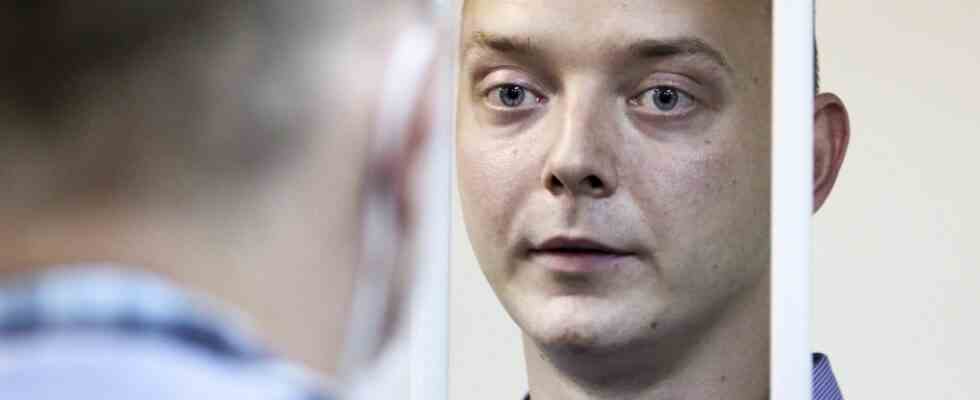Status: 07.12.2022 10:57 a.m
22 years in a prison camp for a journalist – that’s unusual even for Russia. Ivan Safronov is said to have disclosed state secrets, but the trial raised questions. What does he expect from the appeal?
His former colleagues loudly demanded freedom for Ivan Safronov, but in vain in September – at the end of a process that still raises many questions today.
Negotiations had taken place behind closed doors. The public was only admitted to the brief verdict. The judge’s verdict was one of the harshest in recent years, even from the point of view of Russian state agencies.
The court sentenced him to 22 years in a penal camp under strict conditions of detention, a fine of 500,000 rubles and an additional two years of imprisonment for high treason.
A verdict without evidence?
The former journalist and later advisor to the head of the Russian space agency Roskosmos is said to have passed on state secrets to western intelligence services.
The public prosecutor’s office failed to provide any evidence until the end, explained Safronow’s lawyers, three of whom were themselves confronted with investigations in the course of the trial. Lawyer Dmitry Kachev is certain that Safronov was convicted “for his journalistic work.”
No access to state secrets
Kremlin spokesman Dmitry Peskov denied this assumption after Safronov’s arrest two and a half years ago. The Roskosmos board of directors, on the other hand, emphasized that Safronov had no access to state secrets.
Nikita Mogutin, co-founder of the Russian news portal Baza, was not the only one to ask himself how he was able to get hired there as chief adviser when he was suspected of being a military spy at the time:
Mogutin said he was interested in how Safronov got the job as advisor to the head of Roskosmos – “there everyone is put through their paces there.”
Explosive research
Many of Safronov’s former colleagues continue to assume that the process has something to do with his investigative research, which was sensitive even before the recent tightening of the law.
Because Safronov wrote about accidents in the Russian military and explosive arms deals, including a controversial sale of Russian fighter jets to Egypt. According to his own statements, he only used publicly accessible sources.
A paragraph with leeway
The problem is that the paragraph on high treason and espionage is so vague that it leaves a lot of leeway, said the political scientist Ekaterina Schulman at the beginning of the trial on the Echo Moskvy channel,
That’s how you have to for example, do not have access to state secrets in order to commit treason – it is enough to learn something that the state considers relevant to national security and to pass on this information.
Safronov has little hope
For Safronov, who rejected a deal with the public prosecutor’s office, the verdict is and remains not only illegal, but also absolutely unfounded. After all, he only worked as a clean journalist.
In a letter, he asked the court of appeals to reopen the case. He has no illusions that today’s appointment can actually change anything. No matter how, he sticks to having done everything right.
(No chance? Appeal in the Safronov case of high treason
Christina Nagel, ARD Moscow, 6.12.2022 09:39 a.m

